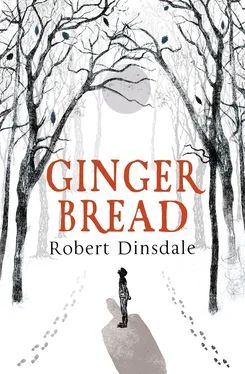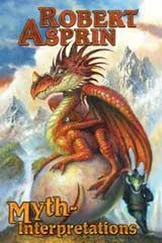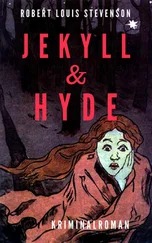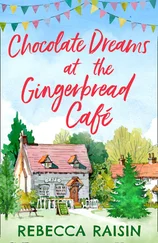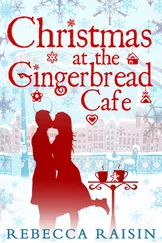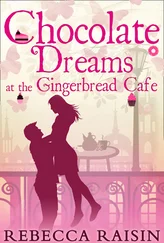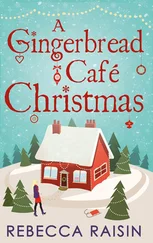1 ...6 7 8 10 11 12 ...20 ‘Did you … see her, papa?’
‘Not today, boy.’
‘It’s her in the paper, isn’t it?’
Both sets of eyes drop to the brown paper package in Grandfather’s lap. Somehow, mama is inside. All of her that was, boiled down to nothingness and poured into a little tin cup. Inside that package are all the times she walked him to school, all the dinners she made, all the stories before bedtime. And the promise she made him make.
‘Can I hold her?’
Grandfather offers her up. In his hands, she feels light as the air. She is the same as any package that might come through the door. He puts his ear to her and listens, but she no longer has a voice.
‘When will we do it?’
Grandfather takes her back.
‘Do it?’
‘Take her to that place, in the forest.’
Grandfather’s face is lined, and for a moment the boy thinks he doesn’t understand.
He says, ‘You know, the place where baba went.’
Grandfather shakes his head. ‘Not there,’ says the old man, lifting mama to marvel at her. ‘We’ll find a place here, in the city. A place near your old house. A special spot. Somewhere she loved to take you. And then, every time we want to talk to her, every time we want to hear her voice or see her eyes, we’ll go there, you and me, and listen to the wind. What do you think, boy? Can you think of a place?’
Sitting at Grandfather’s feet, with the prickling heat of the gas fire touching his back, the boy is somehow frozen. His fingers twitch, as if he might reach out for mama once again, but Grandfather’s hands close protectively around her. He picks out Grandfather’s eyes, but they are still so perfectly blue, that the boy thinks he must simply be mistaken.
‘Papa,’ he whispers. ‘She wanted to be with baba …’
‘She told you that, did she?’
The boy feels as if he is shrinking in size, barely big enough to perch on Grandfather’s boots. ‘No, papa, she told you .’
The silence of the deepest snowfall fills the alcove.
‘When?’ Grandfather begins, his voice a-tremble.
‘It was when we came,’ breathes the boy, as if fearful of his own words. ‘You were in the kitchen and mama was crying and, papa, she made you promise.’
Grandfather hardens. ‘Your mama would understand, boy, if you wanted her near, some place she could be with us. I don’t want to take her to that place, boy. Do you?’
Though the boy is uncertain of the precise place mama meant, he has an image in his head. He was not there when the dust of his Grandma sifted through mama’s fingers, but she took him there in later years – and there he saw the fringe of the rolling forest, the tumbledown ruin which was a place of stories and histories as well. One hour out of the city, two hours or more, and the woods are wide and the woods are wild and the woods are the world forever and ever. It is, he knows, a place that baba loved through all of her life, a place mama would go to, over and again, to hear her dead mother whisper in the leaves.
‘You promised , papa.’
Grandfather is silent. The boy wonders: does he know the meaning of a promise? Perhaps a promise is a thing only for little boys and girls, like schoolyards and alphabets and mittens.
‘Sometimes, boy, you make a promise to stop someone’s heart from bleeding.’
It isn’t like that for the boy. He won’t forget sitting at mama’s side and putting his arms around her and making his oath: to look to his papa, to love his papa, to look after him for all of his days.
‘Papa, she’ll be upset.’
His fingers reach for the brown paper. At first, Grandfather lifts it away. Then, he relents. His fingers scrabble at it, find its corners, tear and touch the urn underneath. ‘Papa, you wouldn’t break a promise if mama knew.’
Grandfather’s chest rises, fills with cold air. He breathes it out in great, slow plumes. In the make-believe grate, the gas fire flickers and retreats. ‘You sound like your mother, boy. Papa, papa, papa .’ Each word is like a flint being chipped from his lips: sharp, severe, showering sparks. He bends down, his face eclipsing the boy’s, and there no longer seems any blue in his eyes. His lips are pursed and his brow is furrowed and the boy can see his fingers whitening around mama’s little urn. ‘Over and again, that’s all she said. Take me to the forest, papa. Take me to the forest!’ He rears back, and out of his hands the package tumbles. To the boy, it seems as if the world slows down. Mama’s package turns, end over end, and rolls to a stop in the deep shag near the grate. ‘Well, what if I don’t want to go to the forest?’ Grandfather snarls, whirling around without another look at the boy. ‘This is my home. My life. What if I can’t go back?’
Listening to the snarl still in his voice, the boy crawls across the floor and snatches up mama’s urn. The lid is still in place and he thinks to lift it, peer at what still remains, but instead he turns to see Grandfather disappearing from the alcove. Heavy footsteps tramp back into the kitchen.
He clings to his mama. ‘Why is papa so angry, mama?’
He hears the rattle of pans, the tramp of more footsteps, a single click as if Grandfather is donning his big black jackboots. Only when the tramping dies does he dare venture up, out of the alcove, and into the kitchen door. Inside, Grandfather has not donned his jackboots at all. He is hunched over a pan of milk and his heavy breathing fogs the tenement air.
‘You’re not angry, are you, papa?’
He is; the boy can see that he is. Even when it is not foaming on his lips, it is shimmering in his eyes. At first, he does not reply. He simply breathes in and, by breathing in, seems to force the anger back deep inside him. The darkness evaporates and his eyes sparkle blue all over again.
‘I’m … sorry, boy. Your mama, is she okay?’
The boy offers up the urn. ‘I don’t think it hurt her, papa.’
It is a good thing when Grandfather takes the urn. The boy can feel his hands, cold and wet and scored with lines. They linger a little on the boy’s hand, and it is like a little pat that you might give a dog in the street. When Grandfather pulls his hands away, the boy’s go with them, his fingers entwining with the gnarled old knuckles.
‘Is it a tale before bedtime, boy?’ the old man asks, almost contrite.
The boy nods. ‘And mama can listen too.’
In the bedroom, Grandfather tells him of the little briar rose. It is a German story, and not of their people, but in it are forests the same as theirs, and peasants who might be like them, were it not for different tongues and different kings. In the story a mama and a papa want a baby of their own, but their lives are empty as the tenement today, until one day an enchantment gives them a daughter, the Little Briar Rose. There is a feast, but there is no place at the table for the thirteenth wise woman of the village, and in revenge she makes a prophecy that, on her fifteenth birthday, the Little Briar Rose will open her finger on a spindle and fall into an unending, poisoned sleep.
Grandfather’s voice has the same sound, like feathers being ruffled, that is swiftly becoming familiar. The boy lets it wash over him. His thoughts, punctuated by mourning mamas and walls of thorn grown up to hem in the sleeping girl, wander.
‘Why don’t you want to go to the forest, papa?’ he says, bolting up in bed so that his words pummel straight through the heart of Grandfather’s fable.
This time, the old man is not so angry after all. ‘That, my boy … that’s another story. One,’ he chokes, ‘that your mama never knew.’
‘We’ll take her though, won’t we?’
Grandfather whispers, ‘I’m sorry, boy. I didn’t mean to get cross. I … miss her, that’s all. We’ll take her tomorrow.’
Читать дальше
